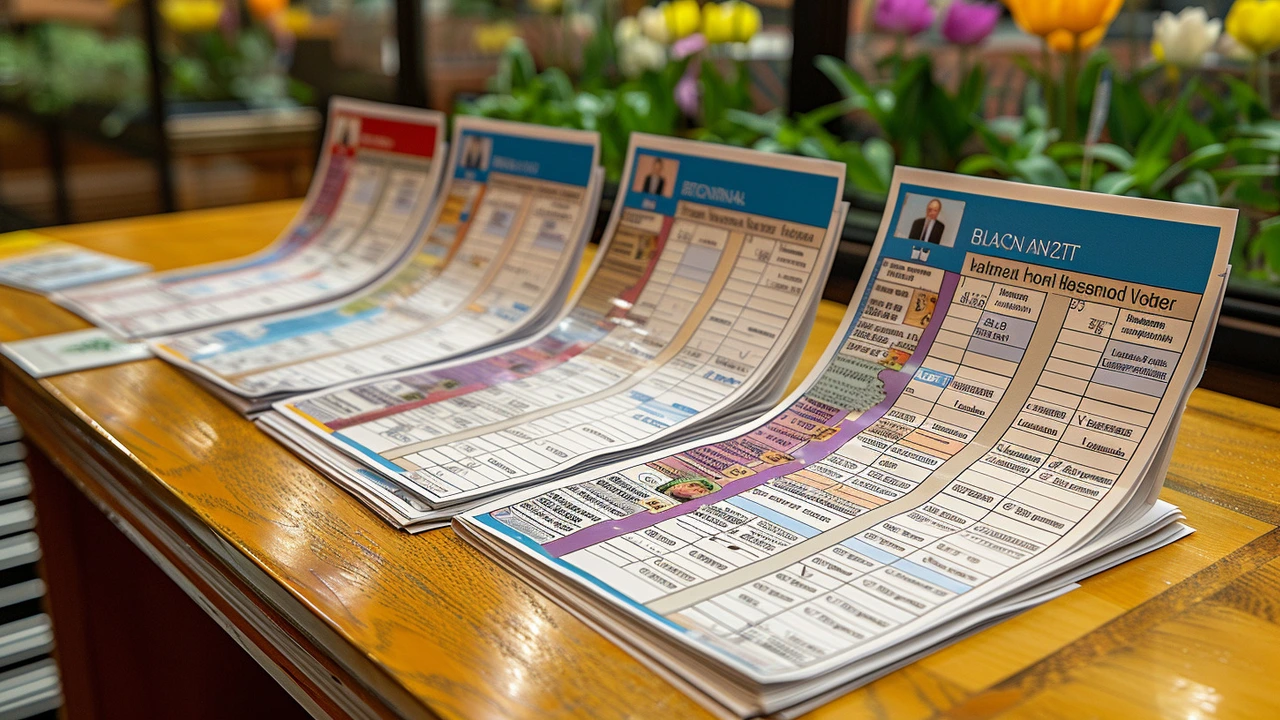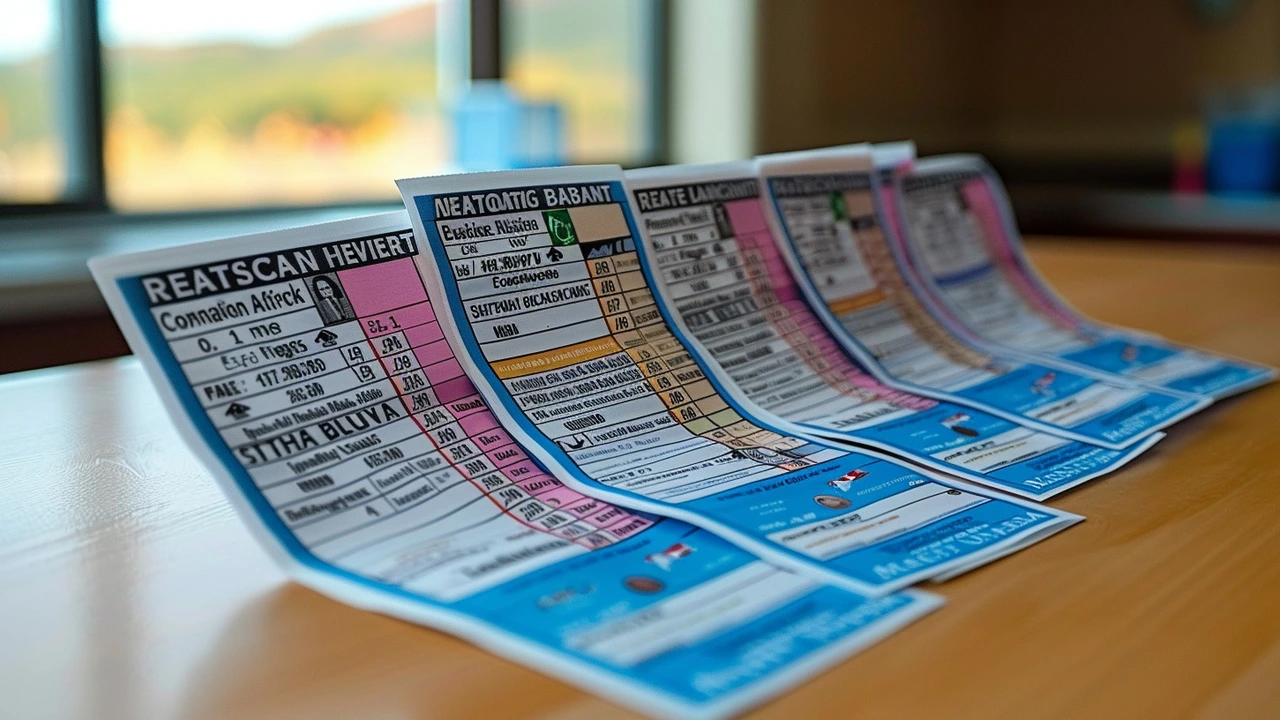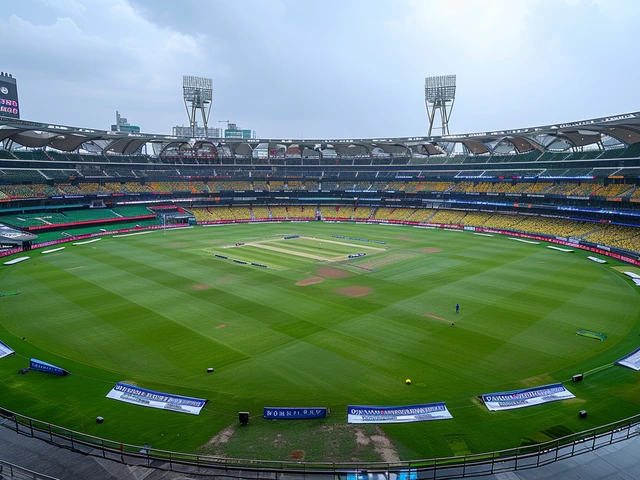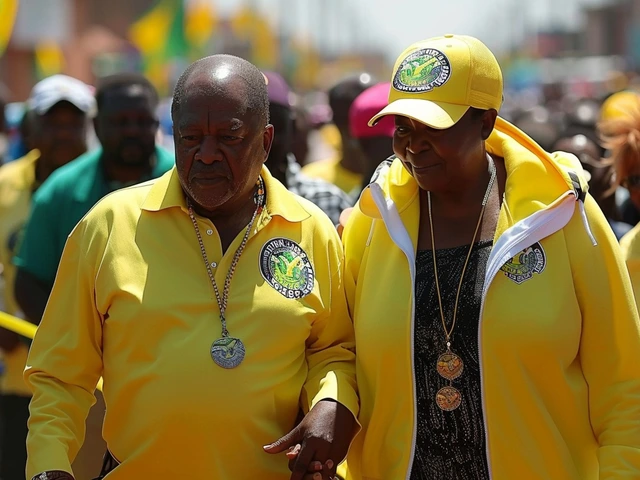Voters Face Multiple Ballots in Upcoming Elections
As the upcoming elections draw near, voters must familiarize themselves with the three distinct ballots they will encounter: the National Compensatory Ballot, the National Regional Ballot, and the Provincial Legislature Ballot. Each ballot serves a unique function and voters must understand the candidates and parties listed on each to make informed decisions.
The National Compensatory Ballot
The National Compensatory Ballot is solely for political parties contesting seats in the National Assembly; it does not include independent candidates. This ballot plays a vital role in ensuring proportional representation, allowing parties that may not win direct constituency seats to still secure representation in the assembly. This ensures a broader range of voices and perspectives are included in the legislative process, which is essential for a healthy democracy.
The National Regional Ballot
The National Regional Ballot differs in that it includes both political parties and independent candidates from specific regions. These candidates are typically more localized and attuned to the particular needs and issues of their respective regions. This ballot provides voters with the opportunity to elect individuals who can address local concerns and represent their region's unique interests on a larger stage.

The Provincial Legislature Ballot
The third ballot, the Provincial Legislature Ballot, offers voters the chance to select their representatives for the provincial legislature. This ballot includes candidates from political parties as well as independent candidates who are vying for seats in the provincial legislature. These representatives will focus on provincial issues and have the authority to make decisions impacting their specific provinces. It’s crucial for voters to understand the scope and importance of provincial legislatures, which often handle significant local policies and regulations.
Special Voting Provisions and Procedures
There are also special provisions for voters who cannot cast their votes on the designated election day. Special votes are available, and these can be applied for by those who expect to be away, are too ill to attend, or have some other valid reason. The application deadline for special votes closed on May 3, and the special voting days are scheduled for the Monday and Tuesday preceding the main election day. Voters approved for special votes must pay close attention to the designated voting days to ensure their votes are counted.
Voting Outside Registered Provinces
Another important aspect is the possibility for voters to cast their votes in a province other than the one where they registered. This provision requires prior application and permission from the Electoral Commission of South Africa (IEC) by May 17. This flexibility is especially useful for those who find themselves far from their registered province on election day but still wish to participate in the democratic process.

Temporary Identity Certificates
Identity verification is a crucial step in the voting process. Voters are required to bring their ID or Temporary Identity Certificate (TIC) to the voting stations. For those who have lost their IDs, the Home Affairs offices will be issuing TICs on election day, granting these individuals the ability to vote without their original ID documents. This service ensures that every registered voter has the opportunity to participate even if they have faced unfortunate circumstances like losing their ID.
Election Day Logistics
The logistics of election day are also well-organized to facilitate a smooth voting process. Voting stations will be open from 7 am to 9 pm, providing ample time for voters to cast their ballots. This extended timeframe ensures that voters can find a convenient time to vote amidst their daily schedules, reducing the risk of disenfranchisement due to time constraints.
Conclusion
In conclusion, the upcoming elections require voters to be well-informed about the different ballots they will encounter, the candidates listed, and the specific procedures they need to follow, including special voting provisions and ID requirements. By understanding these elements, voters can participate effectively in the democratic process, ensuring their voices are heard and contributing to the representative governance of the country. It is essential for every voter to take the time to comprehend these aspects and approach the voting booths with confidence and clarity.






This is actually super helpful! I was confused about the three ballots but now it makes sense. National Compensatory for parties only, Regional for locals + independents, and Provincial for state-level stuff. Got it!
Love that they’re making voting easier with TICs on election day 🙌 No one should lose their voice because they lost their ID. Good job IEC!
Democracy is just a mirror. What you put in is what you get out. If people don’t understand the ballots, they’ll just pick the prettiest logo. Sad but true.
Oh wow, special votes require an application by MAY 3? And I just found out this morning. Guess I’m not voting this year. 😌
Voting from 7am to 9pm is smart. No excuses now. Just go. 🗳️
This whole system is a trap. The IEC lets you vote outside your province? That’s how they manipulate the results. They already know who’s voting where. They’re tracking us. I heard they’re linking TICs to your phone. Don’t fall for it.
I’m not gonna lie, I almost didn’t vote this year. Too much noise, too many lies. But reading this? I felt something. Like, this is my chance to say ‘enough’. The Provincial ballot? That’s where real change happens. My town’s water supply, my kid’s school - that’s all decided there. I’m voting. For real this time.
Honestly the National Compensatory Ballot is just a fancy way of saying party list PR. Anyone who thinks independents can’t win on the Regional ballot is delusional. The system’s rigged to favor big parties. I mean, come on, the IEC’s own data shows 87% of regional independents lose. But hey, keep telling people it’s fair
I’m curious - does the Provincial Legislature Ballot affect things like education funding or land use? I’ve never really understood how provincial vs national powers split. Anyone have a simple breakdown?
The procedural clarity provided herein is commendable. Voter efficacy is directly proportional to informational accessibility. One must not underestimate the gravity of temporal deadlines.
People act like voting is some noble act. But half the people don’t even know what ‘proportional representation’ means. You give them three ballots and they just pick the one with the celebrity’s face. We’re not educating voters. We’re just handing out forms.
They changed the rules again. You think you’re voting for change? Nah. You’re voting for the same people who’ve been in power since 2008. They just moved the ballots around to make it look new. Wake up. This isn’t democracy. It’s theater.
The illusion of choice. Three ballots, one script. The IEC doesn’t want you to understand - they want you to comply. Proportional representation? More like proportional control. The system is designed to pacify, not empower.